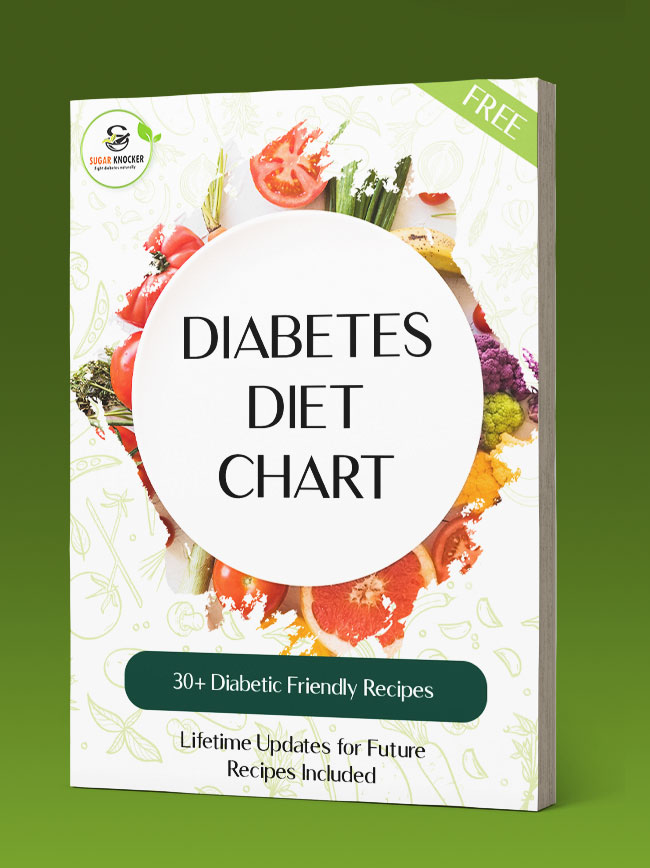
Diabetes mellitus is a metabolic illness that produces excessive blood sugar and is widely understood as diabetes mellitus. The hormone insulin transfers the blood sugar into your cells for energy storage or utilization. The human body does not produce sufficient insulin or can’t utilize insulin properly with diabetes.
Diabetes-related elevated blood sugar can harm your nerves, eyes, kidneys, as well as other organs if left untreated.
Cholesterol is a dangerous kind of fat that flows in the bloodstream. Since lipids do not mix with water, they do not separate in the blood. Cholesterol is synthesized by the body, but it may also be acquired from food. Cholesterol is thought to exclusively be present in animal-based foods.
How to Reduce Cholesterol for Diabetic Patients Naturally
A person’s cholesterol levels may be affected by diabetes. A proper plan can help decrease the consequences of elevated cholesterol levels and diabetes by taking adequate care, eating a nutritious diet for high cholesterol and sugar, and exercising. LDL cholesterol can develop plaques that constrict or block blood arteries when a person’s LDL cholesterol levels grow too high. People are more prone to suffer a stroke or heart attack as a result of high cholesterol and diabetes.
According to new research, people with high cholesterol and diabetes have a higher risk of heart disease even if their blood glucose levels are properly controlled.
Reduced cholesterol levels can also help a person’s heart health, according to experts.
If you have high cholesterol and diabetes follow a well-balanced diet, you lower your risks of developing serious complications.
Benefits of Low Cholesterol
High cholesterol is generally linked to cholesterol issues. This is due to the fact that individuals with elevated cholesterol are much more likely to develop cardiovascular disease. Cholesterol, a fatty compound, can block your arteries and trigger a stroke or heart attack by obstructing the circulation of blood through the artery.
Cholesterol levels can be dangerously low. This is, however, a far less frequent condition than high cholesterol. Low cholesterol may play a role in various medical problems such as cancer, depression, and anxiety. According to a recent study, individuals with type 2 diabetes who have lower cholesterol and blood pressure goal levels may very well be able to avoid or even reverse arterial stiffening.
If you have high cholesterol and diabetes, you’re more likely to have a stroke, a heart attack, or chest pain. Make sure to focus on your cholesterol levels to avoid all the difficulties and to live a healthy lifestyle.
Low cholesterol has numerous benefits, but the best three are:

Protects you against a stroke:
When the flow of blood to a portion of your brain is stopped or decreased, brain tissue is deprived of oxygen and nutrients, resulting in a stroke. Within minutes, brain cells die. Low cholesterol and fat intake, particularly saturated and trans fats, may help to prevent plaque development in your arteries, and thus prevent you from having a stroke. An eating plan, exercising, and weight management can all help you keep your blood sugar levels in check.
When your body is protected against high cholesterol levels, you have a much lower probability of having a stroke; but, when your cholesterol and diabetes levels are both high, you have a much higher chance of having a stroke.
Protects you against a heart attack:
A heart attack, also referred to as myocardial infarction, occurs when a part of the heart muscle does not receive sufficient blood. The longer the heart muscle goes without therapy to reestablish circulation of blood, the more and more damage it sustains.
As we can see, heart attacks have grown considerably more prevalent in today’s environment, with young people being particularly vulnerable. Why do you think that is the case? The explanation is excessive cholesterol levels; nevertheless, the youth do not realize that unhealthy eating habits are not trendy. Unhealthy eating habits can cause stress, and diabetic patients should be aware that cholesterol and diabetes aren’t exactly best friends; too much of either can have significant repercussions. Maintaining good eating habits and adhering to a diet for diabetes and cholesterol can help you in a variety of ways, including lowering your risk of a heart attack.
Protects you against chest pain:
Do you ever get the sensation that your chest becomes numb and you’re in excruciating pain? Do you know why that is? It’s because you have chest discomfort as a result of your body’s excessive cholesterol levels. Chest pain should not be overlooked. However, you should be aware that there are several probable causes. It’s often linked to the heart and can be brought on by excessive cholesterol levels. When you maintain a healthy lifestyle and eat a low-fat, low-cholesterol diet, you are less likely to experience chest discomfort or obstruction.
Natural method to reduce cholesterol

People suffering from high cholesterol levels or diabetes should know that it might not seem big to you in the beginning, but if left untreated it can cause serious issues. One research is commonly touted as proof of sugar’s cholesterol-raising effects. Sugar consumption was found to elevate numerous indicators for heart disease, according to researchers.
They discovered that those who consumed more added sugars had lesser “good” cholesterol or elevated lipoprotein than those who did not (HDL). Extra “bad” cholesterol, or minimal lipoprotein (LDL), is taken up by HDL and sent to the liver. As a consequence, people aim to have the highest HDL levels possible. They also observed that these patients’ triglyceride levels were higher. Either of these factors might increase your chances of getting heart disease.
Triglycerides are a kind of fat that rises in concentration after a meal. Your body stores calories that aren’t being used for energy right now. These triglycerides are produced from fatty tissue and circulated in the blood between meals when you require energy. According to studies, if you eat more than you burn and ingest excessive amounts of sweets, fat, or liquor, your triglyceride levels are likely to go up.
Triglycerides, like cholesterol, do not disintegrate in the blood. They travel through your circulatory system, damaging arterial walls and causing atherosclerosis, or artery stiffening. This boosts your odds of having a stroke, heart attack, or cardiovascular disease.
The Importance of Sugar Consumption Control
To improve health and wellbeing, the World Health Organization suggests consuming no more than 10% of your calories from sugar, or even as little as 5%. Similarly, the American Heart Association advises women to take no more than 100 calories from added sugars per day, while men should take no more than 150 calories — or 6 and 9 ounces, respectively. However, estimates show that this is far less than what most individuals are already receiving.
To put this into perspective, 10 big gummy worms have 78.4 calories from additional sweeteners, or roughly 20 grams of sugar (4 teaspoons), which is virtually your full daily limit for women.
A few habits that you should inculcate if you are a person suffering from high cholesterol and sugar:
- You must read and comprehend nutrition labels for sugar: On packaged foods; sugar isn’t usually labeled as such. Added sugars include corn syrup, honey, malt sugar, jaggery, syrup, maize sweetener, and other terms that finish in “ose” (such as fructose and glucose).
- Look for excellent alternatives: Sugar replacements aren’t all created equal, and some come with their own set of hazards. Unlike agave and honey, which still include complex sugars, stevia is an organic sweetener that is a genuine sugar substitute.
- Track your Sugar Consumption: Sugar consumption should be monitored in the same way that liquor, calories, and saturated fats are monitored and although there’s hardly anything wrong with a few treats now and again, sugar does have the potential to damage your heart.
1. Eat meals that are good for your heart
According to studies, heart disease is the top cause of mortality for both males and females. If you’re concerned about cardiovascular disease, one of the most important things you can do now is start eating a heart-healthy meal. Changes in one’s diet for high cholesterol and sugar will help avoid or even reverse cardiovascular disease.
At first glance, there appears to be a lot to learn. You don’t have to make all of these modifications at once, though. Begin by taking modest moves. Making a few simple improvements over time can make a huge impact on your heart health.
What foods help lower cholesterol and diabetes?
A few dietary modifications that can help lower cholesterol and enhance heart health and foods that lower cholesterol and diabetes:
- Limit your consumption of saturated fats: Saturated fats, which are mostly present in animal protein and full-fat dairy products, boost cholesterol levels. To reduce low-density lipoprotein (LDL) cholesterol, or “bad” lipoproteins, saturated fat intake must be lowered.
- Why you should avoid Trans fats at all costs: Trans fats are widely found in margarine, store-bought biscuits, and confectionery. Trans fats raise cholesterol levels throughout the body. The Food and Drug Administration has placed a moratorium on the use of partially hydrogenated vegetable oils until January 1, 2019.
- Eat meals high in omega-3 fatty acids: Omega-3 fatty acids have no effect on LDL cholesterol. They do, however, provide extra heart-healthy benefits, like blood pressure reduction. Omega-3 fatty acids are abundant in salmon, tuna, seafood, walnuts, and flaxseeds. Try to include as many of these into your routine as feasible.
- Increase your soluble fiber intake: Soluble fiber can aid in the reduction of cholesterol absorption into the circulatory system. Soluble fiber is abundant in oatmeal, black beans, green leafy vegetables, apples, and pears.
- Whey protein must be incorporated: Whey protein, which is found in dairy foods, may be responsible for many of the health benefits attributed to milk products. When used as a supplement, whey protein has been shown to be a food to lower LDL cholesterol, lipid panel, and hypertension.
2. Enhance your physical activity by exercising most days of the week
Exercise can aid in the reduction of total cholesterol. High-density lipoprotein (HDL) cholesterol, commonly known as “good” cholesterol, can be increased by vigorous exercise. Work up to 30 minutes of physical activity multiple times a week, or 20 minutes of strenuous aerobic activity three to four times a week, as per your doctor’s recommendation.
Physical activity or exercising can help you stay in better shape and lower your chance of acquiring diseases including type 2 diabetes, cancer, and cardiovascular disease. Physical activity and exercise may improve your overall health now and in the future. Most importantly, regular exercise can improve your quality of life.
You can reap the following benefits by exercising for at least 30 minutes every day:
- minimize your chances of having a heart attack
- improved weight management
- have a decreased cholesterol level in the blood
- reduces the incidence of type 2 diabetes and cancer in some people
- have lower blood pressure
- have healthier bones, muscles, and joints, and are less prone to developing osteoporosis
- reduce your chances of falling
- Recover more quickly from hospitalization or severe trauma.
- Feel at ease — with more energy, a brighter mood, a calmer state of mind, and improved sleep.
3. Quit smoking
Smoking causes sickness and incapacity, as well as injury to almost all of the body’s organs. In the United States, more than 16 million people are suffering from a disease caused by tobacco use. For every person who died as a direct result of smoking, at least 30 individuals live with a severe smoking-related illness. Cigarette smoking causes cancer, heart disease, strokes, lung difficulties, diabetes, and chronic obstructive pulmonary disease (COPD), which takes into account inflammation of the airways. Smoking also raises the chance of TB, some eye disorders, and immune system issues, such as rheumatoid arthritis.
Smoking quitting boosts HDL cholesterol levels instantly. The benefits are obvious right away:
- Within twenty minutes of quitting smoking, both blood pressure, and heart rate had returned to normal.
- Three months after quitting smoking, your circulation of blood and lung function improves.
- Within a year of quitting smoking, your risk of heart attack is half that of a smoker.
4. Lose weight
Obesity may cause a variety of ailments as well as disrupt your body’s natural equilibrium. To prevent such serious issues and live a healthy lifestyle, the first step is to lose weight, especially if you have high cholesterol or diabetes. Make sure you’re aware of the implications of not staying in shape and have a plan in place to deal with them.
High cholesterol is caused by carrying even a few extra pounds. Small adjustments accumulate over time. Shift to clean water if you consume sweetened drinks. Munch on air-popped popcorn or crackers but keep your calorie count in mind. ‘Try sherbet or low-fat sweets like jellybeans if you’re craving something sugary.
Look for methods to add extra exercise to your everyday routine, such as walking upstairs rather than just taking the elevator or parking further away from your workplace. During your breaks at work, go for a stroll. It’s a good idea to increase standing activities like cooking or mowing the yard.
5. Drink alcohol only in moderation
The advantages of moderate alcohol consumption have been related to increased levels of HDL cholesterol, but the evidence isn’t powerful enough to suggest alcohol to anybody who doesn’t currently consume it.
If you want to consume alcohol, do that in moderation. It means no more than one drink each day for women of all ages and men over the age of 65, and no more than two drinks each day for males 65 and below in healthy individuals. Consuming alcohol excessively can cause significant health problems such as high blood pressure, sudden cardiac death, and strokes.
Conclusion
Healthy lifestyle changes aren’t always enough when it comes to reducing levels of cholesterol. If you want to switch to medications, try our ayurvedic capsules, Curcumin Diabetes Dietary Supplement that helps you to decrease your cholesterol, follow the directions carefully while continuing to make healthy lifestyle choices.

